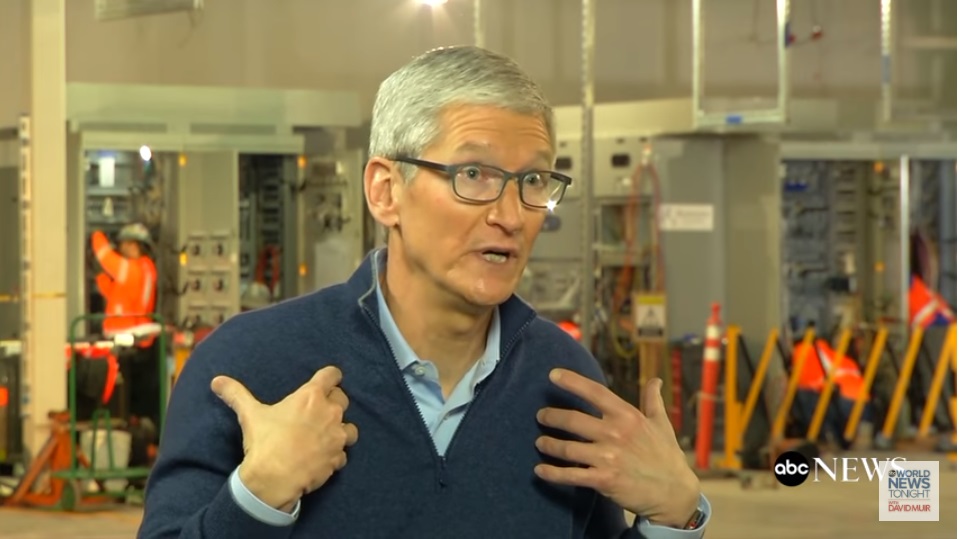Apple CEO Tim Cook has apologised to customers for slowing down their iPhones to compensate for ageing batteries, as lawsuits continue to mount against the tech giant.
Speaking on US television program ABC World News Tonight, Cook said Apple made the decision to lessen the performance of an iPhone rather than risk users having an “unexpected restart”.
“We deeply apologise for anybody that thinks we had some other kind of motivation,” he said.
“The user is at the centre of everything we do.”
Last year, Apple introduced a feature that would slow down an iPhone noticeably if the battery was ageing to avoid the iPhone suddenly switching off.
Cook said when the company introduced this feature, it told users about it, “but I don’t think a lot of people were paying attention – and maybe we should have been clearer, as well.”
“We felt it would be better to take something off the performance to prevent that [unexpected shutdowns] from happening.
“Our actions were all in service of the user – I can’t stress that enough. Our actions were always the purest.
“If anybody out there believes we did something nefariously, we apologise for any kind of thing that I – we – did or didn’t do.”
Cook said some changes would be forthcoming so that users were informed when performance decreased.
“We’ve listened to the feedback very carefully and what we’re doing now is…in a developer release that happens next month, we’re going to give people the visibility of the health of their battery, so it’s very, very transparent.”
“We will tell somebody ‘We’re reducing the performance of your iPhone by some amount in order to not have an unexpected restart.’
“And if you don’t want it, you can turn it off.
“Now, we don’t recommend it because we think that people’s iPhones are really important to them.
Cook’s apology comes as lawsuits against the company continue to stack up, with 48 class action now filed, according to website Patently Apple.
One of the most recent filings was made by 29 individuals who are demanding US$5 billion compensation for this “throttling defect”.
"Apple surreptitiously throttled the processor speeds of iPhones to mask the manifestation of sudden shutdowns that iPhones with degraded batteries were experiencing,” the suit states.










